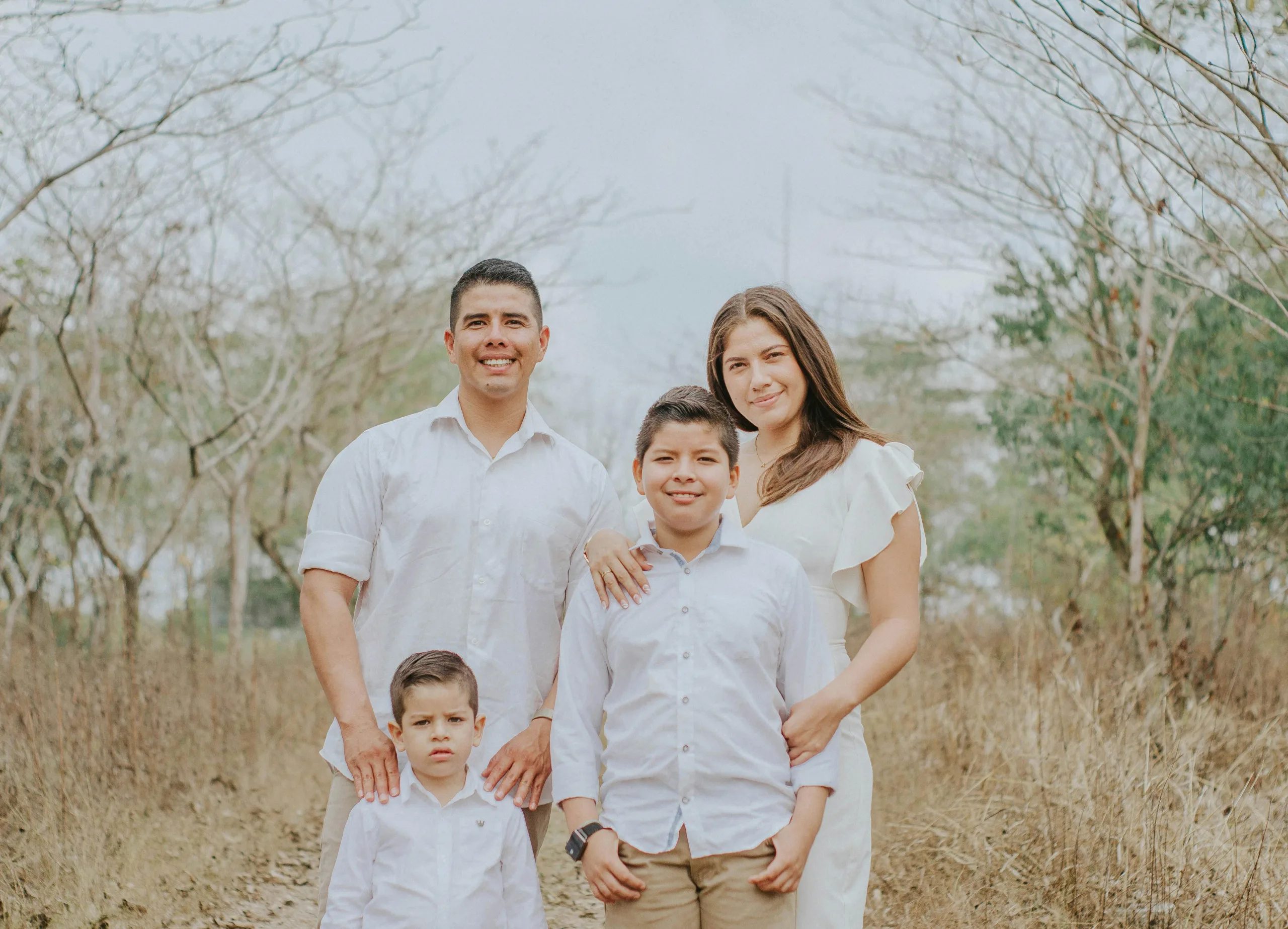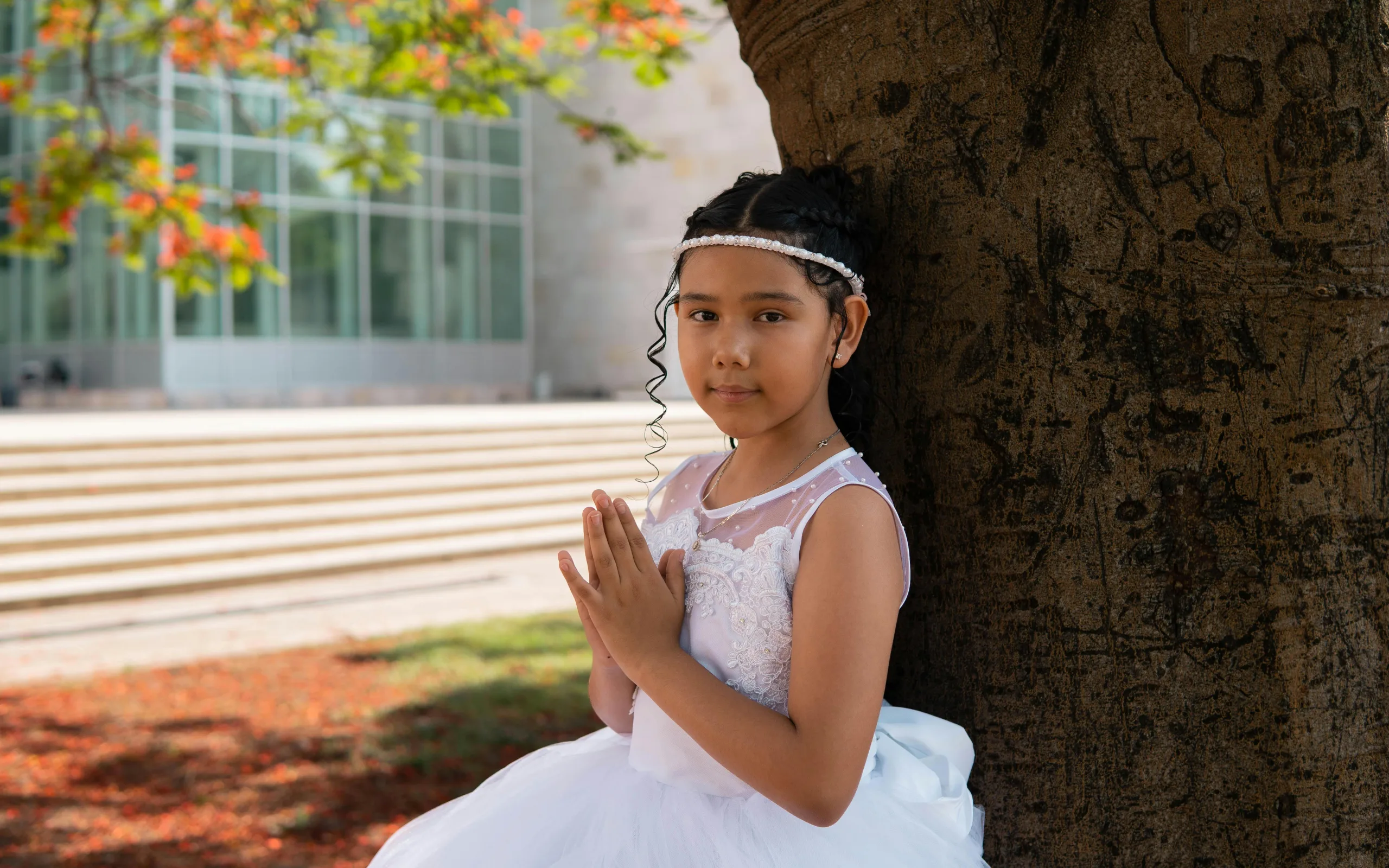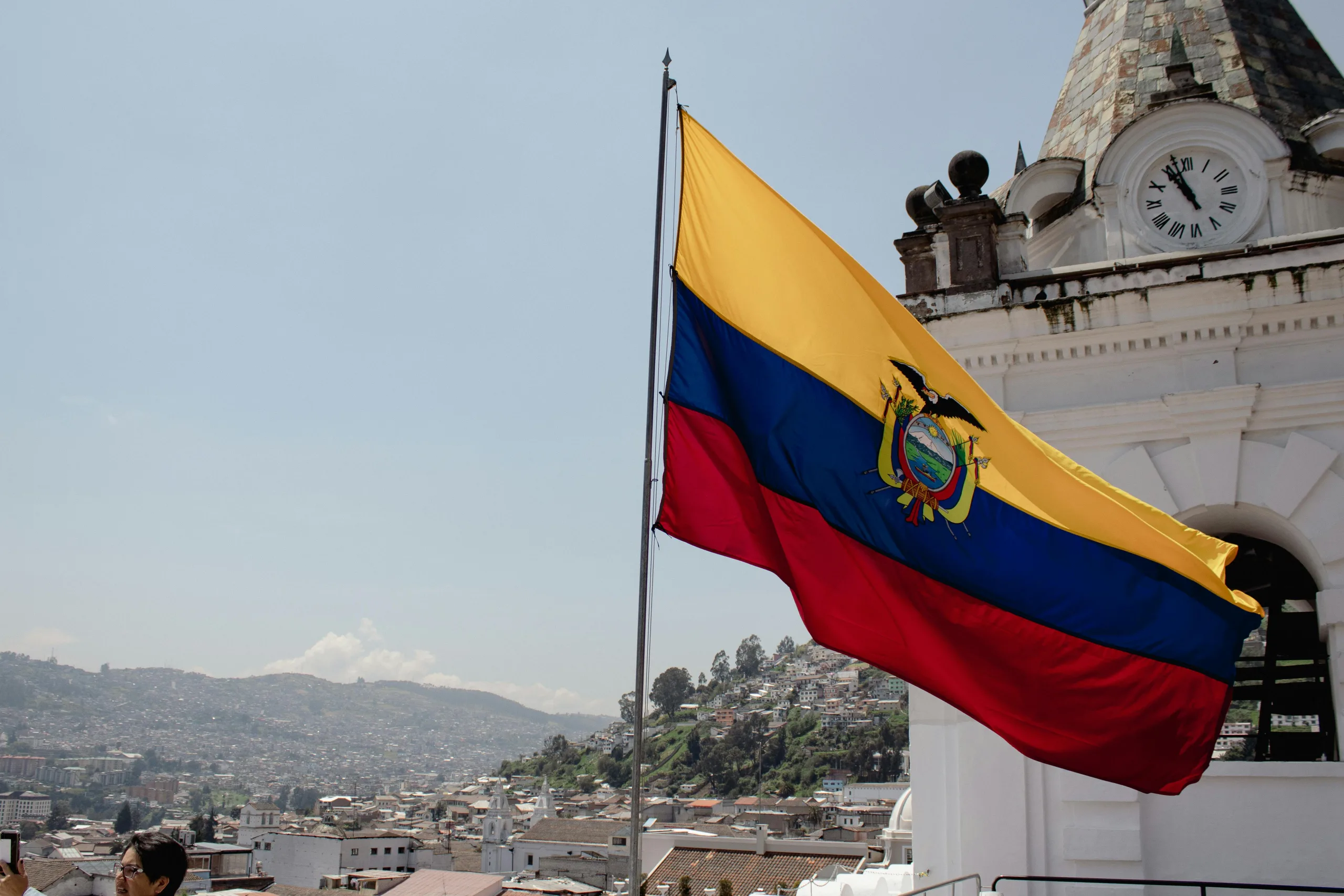Hosting an Ecuadorian au pair gives your family the opportunity to experience a rich cultural heritage influenced by Indigenous traditions, Spanish colonial history, and modern customs. Ecuadorian culture is shaped by its diverse geography—ranging from the Andes Mountains to the Amazon rainforest—and by the vibrant mix of ethnic groups that call the country home. In this guide, we’ll explore Ecuadorian family values, food traditions, music, festivals, and religious practices to help host families create a warm, inclusive environment for their au pair.
What is the Culture of Ecuador?
Ecuadorian culture is a dynamic blend of Indigenous, Spanish, and other influences. About 77% of the population identifies as mestizo, a mix of Indigenous and European heritage, reflecting the diverse cultural landscape. Other ethnic groups include Montubios (coastal communities with unique traditions) and Indigenous peoples, who continue to preserve their languages and customs.
The country’s diverse heritage is reflected in its food, language, and traditions. While Spanish is the official language, Indigenous languages like Quechua and Shuar are still spoken widely, particularly in rural areas.
Ecuadorian Family Dynamics and Values
Family is the heart of Ecuadorian culture. Extended families often live close to one another, with strong ties across generations. Gatherings are frequent and lively, emphasizing respect for elders and close-knit relationships.
Traditional gender roles are common, with men often viewed as protectors and providers, while women traditionally manage the household. However, younger generations are adopting more progressive views, especially in urban areas. As a host family, understanding these dynamics can help you create a welcoming environment where your au pair feels understood and supported.

Foods and Dining Culture and Traditions of Ecuador
Ecuador’s food culture varies by region, with staples like plantains, corn, and potatoes being central to many meals. On the coast, seafood dishes like ceviche are popular, while in the highlands, cuy (guinea pig) and hearty stews are traditional fare. Mealtime is a social event, with lunch often being the largest meal of the day, shared with family.
As a host family, you can foster a sense of home for your Ecuadorian au pair by incorporating familiar foods into your meal plans or by sharing meals that mirror Ecuadorian dining customs. This small act can go a long way in helping them feel more connected.
Music, Dance, and Sports in Ecuador
Ecuadorian music is a vibrant mix of Indigenous, Spanish, and African influences. Instruments like the bamboo flute and charango are commonly heard in traditional Andean music, while salsa and bachata are popular dance styles at social gatherings.
Our overview of Ecuador (culture, facts, etc.) wouldn’t be complete without mentioning soccer, or fútbol, is Ecuador’s national sport, deeply woven into the country’s social fabric. Families often come together to watch matches, creating a shared experience similar to the passion for sports like American football or basketball in the U.S. Encouraging your au pair to join your family in local sports events can help bridge cultural differences and strengthen bonds.
Ecuadorian Festivals and Holidays
One of the best ways to understand the culture of Ecuador is through its vibrant festivals and holidays. These celebrations often involve food, music, dance, and religious traditions. Some key holidays include:
- New Year’s Eve (Año Viejo): A tradition involves burning effigies called monigotes to say farewell to the old year and welcome the new one
- Day of the Dead (Día de los Muertos): A day to honor deceased loved ones, celebrated with traditional foods like guaguas de pan (bread babies) and colada morada (a spiced fruit drink)
- Independence Day: A patriotic celebration marked by parades, music, and cultural activities
- Carnival: A lively festival involving water fights, colorful parades, and feasts before Lent
- Religious Holidays: Christmas and Easter are celebrated with a blend of Catholic traditions and Indigenous customs
Participating in these traditions can help host families learn interesting facts about Ecuador’s culture and connect with their au pair.
Religious Influence on Cultural Practices
Catholicism plays a significant role in Ecuadorian culture, influencing daily customs and celebrations. Indigenous beliefs often blend with Catholic traditions, especially in rural areas. For example, mountains are seen as sacred, and religious festivals may include both Catholic rites and Indigenous rituals.
As a host family, understanding the religious background of your au pair can help you honor their beliefs and traditions, particularly during important religious holidays like Christmas and Easter.

What Are Three Aspects of Ecuadorian Culture That Are Similar to the United States?
While Ecuadorian culture has its unique aspects, there are several similarities to American culture:
- Family-Oriented Values: Both Ecuador and the United States place a high value on family life and togetherness. In Ecuador, family is at the center of social structure, with an emphasis on respect for elders and the nurturing of close-knit relationships. Similarly, in the U.S., there is a strong emphasis on family bonds, shared activities, and spending quality time together. In both cultures, family gatherings during holidays, birthdays, and special occasions are highly valued and prioritized, creating a shared understanding and appreciation for the importance of family time.
- Love of Sports: While the sports themselves may differ, Ecuadorians share a passion for sports similar to Americans. In Ecuador, soccer (or fútbol) is more than just a sport; it’s a cultural phenomenon that brings people together across generations. The excitement for the game mirrors the way Americans feel about sports like football, baseball, and basketball. The enthusiasm around national and international matches is palpable, and families come together to cheer for their favorite teams, creating a communal experience that both Ecuadorians and Americans can relate to.
- Modern and Progressive Trends: In recent years, urban areas of Ecuador have experienced a cultural shift toward progressive social views, much like in the U.S. Younger generations are increasingly adopting modern ideas and values, particularly in cities like Quito and Guayaquil. This shift includes greater awareness around issues like gender equality, environmental conservation, and social justice, balanced alongside traditional customs. Similarly, in the United States, urban areas often serve as hubs for social change and progressive thought.
These parallels between Ecuador and the U.S. can create common ground for host families and their au pairs.
What Are Three Aspects of Ecuadorian Culture That Are Different from the United States?
Despite some similarities, there are also distinct differences between Ecuadorian and American cultures:
- Extended Family and Community Living: One of the distinct differences is the concept of extended family and community living in Ecuador. It’s common for multiple generations to live together or in close proximity, creating strong family networks. This means that grandparents, aunts, uncles, and cousins are often actively involved in each other’s daily lives. The concept of compadres (godparents who share close ties with the family) and communal solid bonds, particularly in rural areas, are integral to social life. In contrast, American culture tends to prioritize more individualistic living, with a focus on the nuclear family. Understanding this can help host families appreciate the importance of familial connections in their au pair’s life.
- Indigenous Influence: Ecuador’s indigenous heritage has a significant impact on the country’s modern culture, which is not as prevalent in the United States. Indigenous traditions, languages, and social customs play an important role in daily life and are celebrated across the nation. This influence is seen in festivals, crafts, clothing, music, and even cuisine. Indigenous groups like the Otavoleños maintain their traditional weaving practices and attire, contributing to Ecuador’s rich cultural diversity. While the U.S. has diverse cultures and traditions from its Native American populations, the level of indigenous cultural influence in everyday Ecuadorian life is distinct.
- Religious Observances: Ecuador’s religious customs are deeply tied to Catholic beliefs and often intertwined with indigenous practices, forming a unique blend of spiritual traditions. Religious events like processions, festivals, and rites are a common aspect of community life, with observances that vary from region to region. Mountains, which hold spiritual significance, are often sites of religious shrines. These practices may differ from the more diverse range of religious customs and secular holiday celebrations observed in the United States.
Understanding these differences will help host families respect and accommodate their au pair’s beliefs and customs.
Practical Tips for Host Families
Creating a welcoming and culturally enriching environment for an Ecuadorian au pair is an exciting opportunity to learn from each other and build lasting memories. Here are some practical tips for host families to ensure a positive cultural exchange:
- Explore Cultural Conversations: Make a conscious effort to learn about your au pair’s cultural background by encouraging open discussions about Ecuadorian traditions, values, and customs. Show genuine curiosity about their favorite holidays, family traditions, or daily routines, and share your own experiences to foster understanding.
- Introduce Ecuadorian Foods: Food is a great way to connect! Try preparing traditional Ecuadorian dishes like ceviche, llapingachos (cheese-filled potato patties), or locro (a hearty potato soup). Alternatively, explore local Ecuadorian restaurants together for a shared culinary experience, making your au pair feel at home.
- Learn Spanish and Key Phrases: Even if you only learn a few simple Spanish phrases, it shows your au pair that you’re making an effort to connect with them in their native language. This can help bridge any communication gaps and deepen your bond. Practicing language together can be a fun activity that benefits both your family and your au pair.
- Share American Culture: The cultural exchange goes both ways! Share your own customs, whether it’s celebrating American holidays like Thanksgiving, introducing your au pair to local traditions, or exploring nearby cultural events. This mutual exchange of traditions and customs will help create a balanced and enriching environment.
By embracing each other’s cultures, host families and au pairs can create a unique and meaningful experience that promotes mutual understanding, respect, and lifelong memories.
Become a Host Family and Find an Au Pair
Embracing cultural differences and fostering mutual respect is the heart of hosting an au pair from Ecuador. The cultural exchange benefits both your family and your au pair, offering lifelong connections and a deeper understanding of the world. If you’re ready to begin this rewarding journey, learn more about host family requirements or find your perfect au pair match.
Sign up to become a host family today and start a transformative cultural exchange experience with Go Au Pair!



